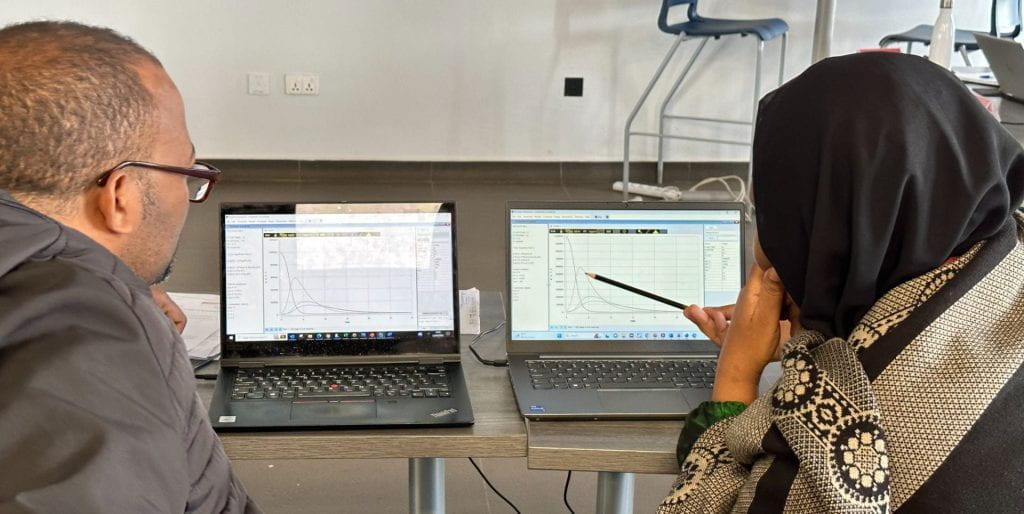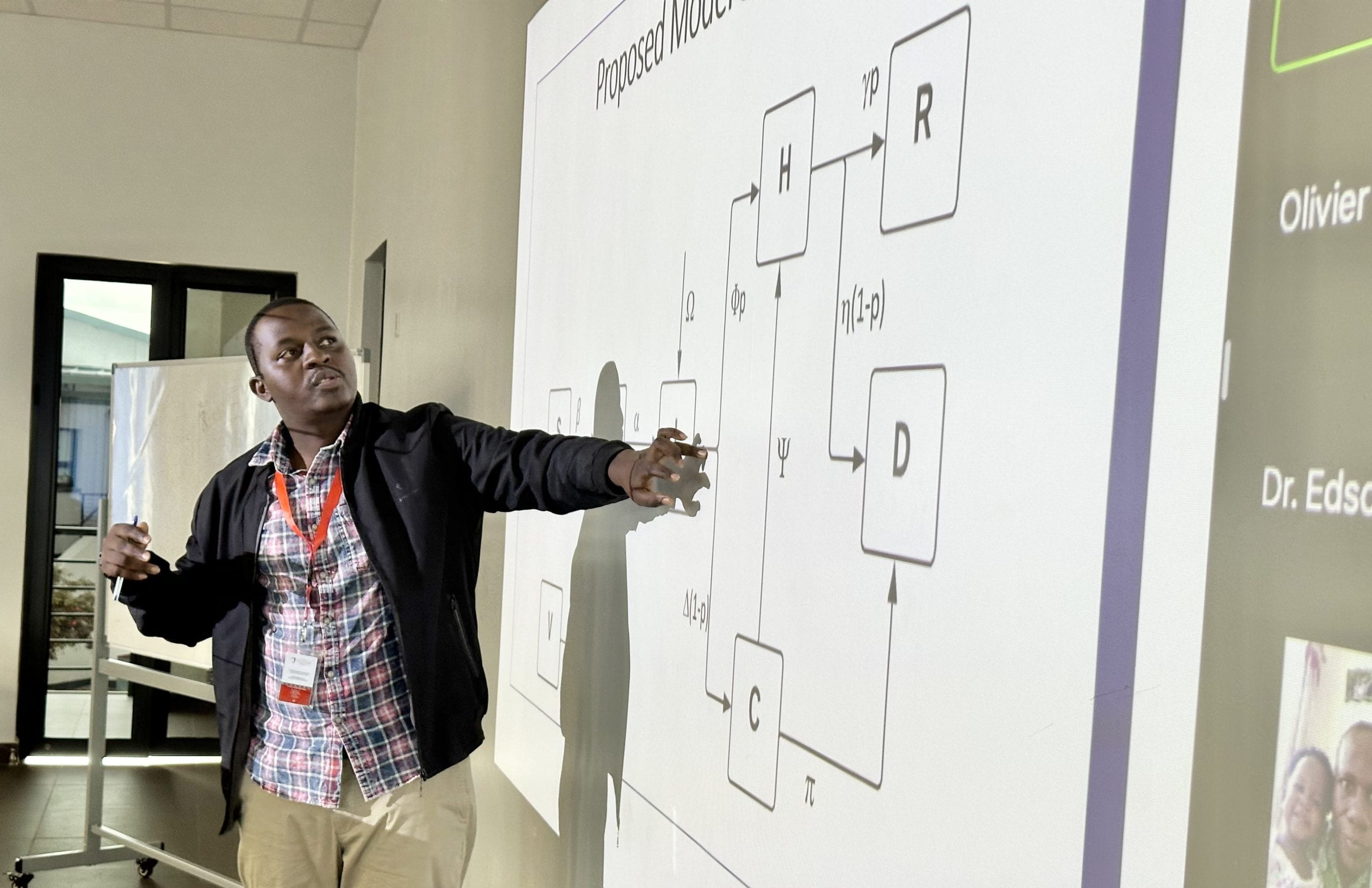From the Director:

This month, some of our team has been conducting a course in Rwanda on the mathematical modeling of infectious diseases. The course was funded by a grant from the US Centers for Disease Control and is designed to increase familiarity in the principles and practice of epidemic modeling and its role in helping formulate policies to prevent and respond to epidemics. The goal was not only to introduce the participants to concepts but also to give them hands-on experience with developing models that can provide insight into practical problems they face.
Who are the trainees?
The team issued a call for applicants, targeting academics, policy makers and health care implementers across Africa and received 875 applications, from which 10 participants were selected: six from Rwanda, two from Uganda, and two from Kenya. All of the trainees came with a wealth of experience and chose projects that align with their ongoing professional challenges.
Who is the training team?
Professor Caroline Buckee (from Harvard’s Center for Communicable Disease Dynamics) served as the lead technical trainer, supported by two Harvard-based postdoctoral fellows, Sylvia Ofori and Emmanuelle Dankwa. Core member Bethany Hedt-Gauthier worked with two faculty from the University of Global Health Equity in Rwanda, Emmanuel Ngwakongnwi and Alemayehu Amberbir, to provide direct mentorship to the trainees and to adjust the content to fit the applied learning-by-doing model. The course content was also advised by several Harvard faculty, including core-director Megan Murray.
Where are we?
The course was hosted on the University of Global Health Equity campus in Butaro, Rwanda, approximately 3 hours from Kigali. The environment was amazing, and the logistics were seamless. Everyone – from trainers to trainees – commented that UGHE was an incredible place to learn together.
What have we been doing?
The focus for the course was an introduction to infectious disease mathematical modeling to answer pressing public health questions and using the differential equation modeling program, Berkeley Madonna to implement models. Berkeley Madonna donated perpetual licenses to our trainees so that they can continue to use this for their work moving forward.
Each team applied the course concepts to the questions they had identified: developing their compartmental models and differential equations, identifying parameter values, and incorporating these into a working model. Projects include evaluating strategies to contain Ebola during outbreaks, understanding the need for prospective monitoring for cancer among Hepatitis C patients that have undergone treatment, and evaluating the potential impact of booster Covid-19 vaccinations to minimize future outbreaks.
What comes next?
The second part of the training will be hosted in Rwanda this coming summer. Between now and then, trainees will finalize their basic models with virtual support from the training team. In the next session, the training will cover more advanced topics, such as sensitivity analyses, incorporating uncertainty, and assessing model fit against real data. The course will culminate with focusing on effective communication of results through presentations and policy briefs.

